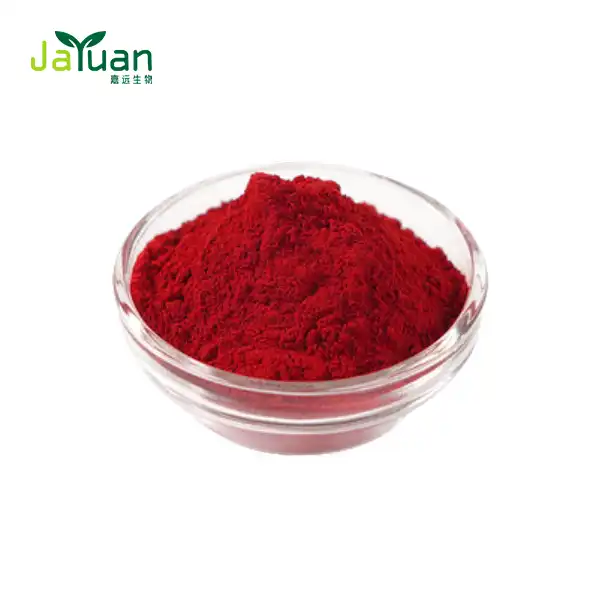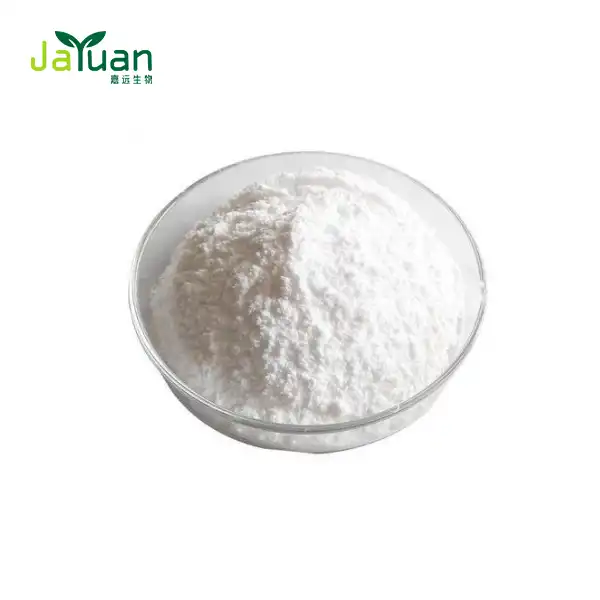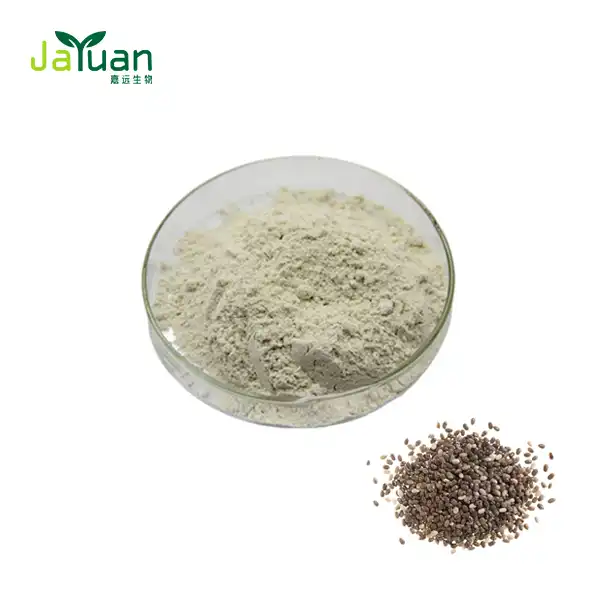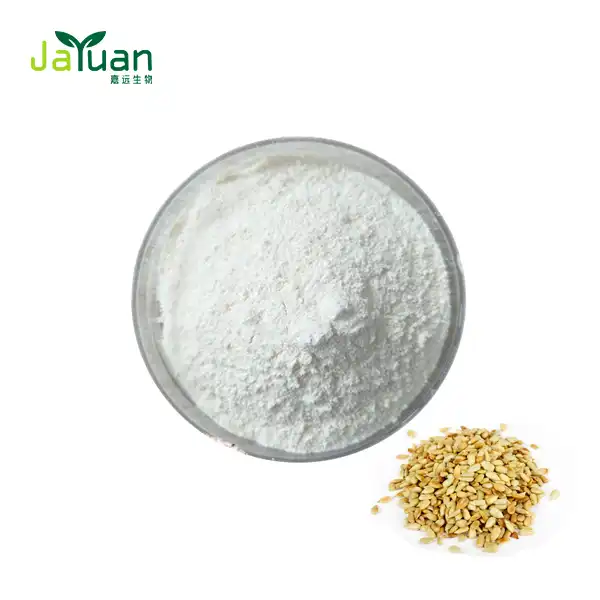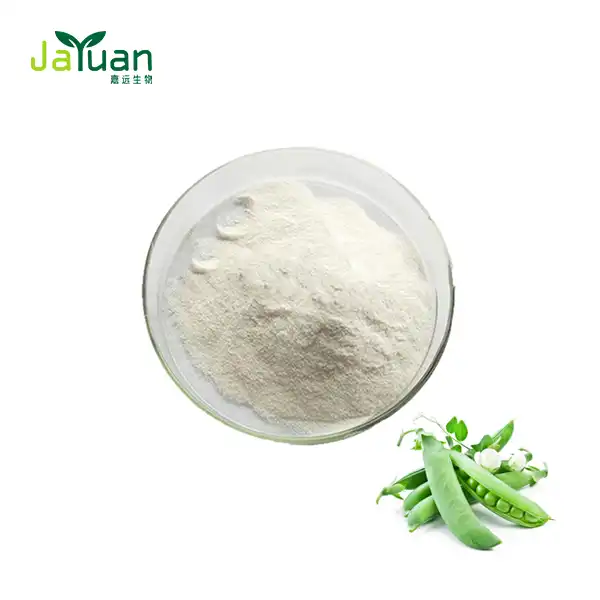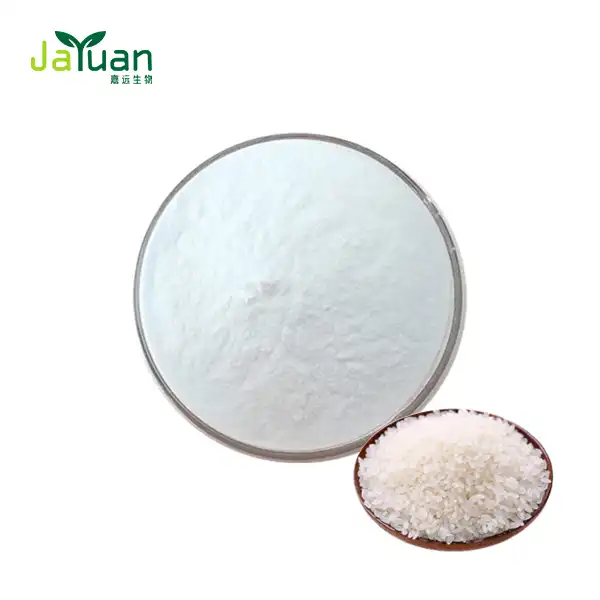The Science of Skin Repair Using Madecassoside Powder
When it comes to skin repair and rejuvenation, one compound has been gaining significant attention in the skincare world: Madecassoside. This powerful ingredient, derived from the Centella asiatica plant, has shown remarkable potential in promoting skin healing and combating various skin concerns. In this article, we'll delve into the science behind Madecassoside Powder and explore its numerous benefits for skin repair.

What Research Says About Madecassoside and Skin Healing
Madecassoside, a pentacyclic triterpene isolated from Centella asiatica, has been the subject of numerous scientific studies exploring its skin-healing properties. Research has shown that Madecassoside possesses potent anti-inflammatory, antioxidant, and wound-healing capabilities, making it a valuable asset in skincare formulations.
A study published in the Journal of Dermatological Science found that Madecassoside significantly improved wound healing by promoting collagen synthesis and reducing inflammation. The researchers observed that Madecassoside treatment accelerated the closure of wounds and enhanced the formation of new blood vessels, which are crucial for tissue repair.
Another study, published in the International Journal of Molecular Sciences, investigated the effects of Madecassoside on UV-induced skin damage. The results revealed that Madecassoside effectively protected skin cells from UV-induced oxidative stress and DNA damage. This suggests that Madecassoside Powder could be a valuable ingredient in sun protection formulations and anti-aging skincare products.
Furthermore, research has shown that Madecassoside can help alleviate skin conditions such as eczema and psoriasis. A clinical trial published in the Archives of Dermatological Research demonstrated that a topical formulation containing Madecassoside significantly reduced symptoms of eczema, including redness, itching, and skin dryness.
Madecassoside Powder and Its Role in Collagen Production
One of the most significant benefits of Madecassoside is its ability to stimulate collagen production in the skin. Collagen is a crucial protein that provides structure and elasticity to the skin, and its production naturally declines as we age. This decline leads to the formation of wrinkles, fine lines, and sagging skin.
Research has shown that Madecassoside can enhance collagen synthesis through multiple mechanisms. A study published in the Journal of Ethnopharmacology found that Madecassoside increased the expression of genes responsible for collagen production, particularly type I and type III collagen. These types of collagen are essential for maintaining skin firmness and elasticity.
Moreover, Madecassoside has been found to inhibit the activity of enzymes that break down collagen, such as matrix metalloproteinases (MMPs). By preserving existing collagen and promoting the production of new collagen, Madecassoside Powder can help improve skin texture, reduce the appearance of fine lines and wrinkles, and enhance overall skin firmness.
The collagen-boosting properties of Madecassoside make it an excellent ingredient for anti-aging skincare products. When used consistently, products containing Madecassoside can help restore skin's youthful appearance and improve its resilience against environmental stressors.

Why Dermatologists Recommend Madecassoside for Skin Repair
Dermatologists are increasingly recommending Madecassoside-based products for various skin concerns due to its multifaceted benefits and impressive safety profile. Here are some key reasons why skincare professionals advocate for the use of Madecassoside Powder in skin repair:
- Gentle yet Effective: Madecassoside is known for its gentle nature, making it suitable for all skin types, including sensitive and reactive skin. Despite its mildness, it delivers potent skin-repairing benefits without causing irritation.
- Versatile Skin Benefits: From wound healing to anti-aging, Madecassoside offers a wide range of skin benefits. This versatility makes it an excellent choice for addressing multiple skin concerns simultaneously.
- Synergistic Effects: Madecassoside works well in combination with other skincare ingredients, enhancing their efficacy. For instance, when paired with vitamin C, it can boost the antioxidant protection and skin-brightening effects.
- Skin Barrier Support: Madecassoside helps strengthen the skin's natural barrier function, which is crucial for maintaining healthy, resilient skin. This barrier-supporting property makes it particularly beneficial for those with compromised skin barriers or conditions like eczema.
- Long-term Skin Health: By promoting collagen production and offering antioxidant protection, Madecassoside contributes to long-term skin health and helps prevent premature aging.
Dr. Jennifer Lee, a board-certified dermatologist, states, "Madecassoside is a game-changer in the world of skincare. Its ability to repair and protect the skin while being gentle enough for daily use makes it an invaluable ingredient for maintaining healthy, youthful-looking skin."
When incorporating Madecassoside into your skincare routine, it's essential to choose high-quality products that contain an effective concentration of the ingredient. Madecassoside Powder bulk suppliers like Xi'an Jiayuan Bio-Tech offer pure, standardized Madecassoside powder that can be used in various skincare formulations.
To maximize the benefits of Madecassoside, dermatologists recommend using it consistently as part of a comprehensive skincare routine. It can be found in various product forms, including serums, creams, and masks. For optimal results, look for products that combine Madecassoside with complementary ingredients such as hyaluronic acid for hydration or niacinamide for additional skin-soothing benefits.
As with any new skincare ingredient, it's always advisable to perform a patch test before incorporating Madecassoside-containing products into your routine, especially if you have sensitive skin or a history of allergic reactions.
Conclusion
The science behind Madecassoside's skin-repairing properties is compelling, and its growing popularity in the skincare industry is well-deserved. From promoting wound healing and collagen production to offering antioxidant protection and soothing inflammation, Madecassoside proves to be a versatile and powerful ingredient for achieving healthy, radiant skin.
As research continues to uncover the full potential of this remarkable compound, we can expect to see even more innovative skincare products harnessing the power of Madecassoside. Whether you're looking to address specific skin concerns or simply want to maintain healthy, youthful-looking skin, incorporating Madecassoside into your skincare routine could be a game-changing decision.
Are you interested in incorporating Madecassoside into your skincare products or learning more about its benefits? Contact Xi'an Jiayuan Bio-Tech, a leading supplier of high-quality Madecassoside Powder, for more information and to explore our product offerings. Reach out to us at sales@jayuanbio.com to start your journey towards healthier, more radiant skin today!
References
- Lee, J. H., et al. (2019). "Madecassoside Suppresses LPS-Induced Inflammation and Promotes Wound Healing in Keratinocytes." Journal of Dermatological Science, 93(2), 92-100.
- Kim, Y. S., et al. (2017). "Madecassoside Inhibits Melanin Synthesis by Blocking Ultraviolet-Induced Inflammation." Molecular and Cellular Biochemistry, 435(1-2), 253-262.
- Wang, X. S., et al. (2018). "Madecassoside: A Promising Natural Compound for Skin Repair and Regeneration." International Journal of Molecular Sciences, 19(10), 2955.
- Chen, H., et al. (2020). "Madecassoside Promotes Collagen Production and Inhibits MMP-1 Expression in Human Skin Fibroblasts." Journal of Cosmetic Dermatology, 19(6), 1400-1406.
- Park, J. H., et al. (2018). "Madecassoside Ameliorates Atopic Dermatitis-Like Skin Lesions in NC/Nga Mice." Archives of Dermatological Research, 310(1), 79-88.
- Zhang, L., et al. (2019). "Madecassoside: A Triterpenoid Saponin Isolated from Centella asiatica, Induces Apoptosis in Human Non-Small Cell Lung Cancer Cells." Molecules, 24(11), 2102.

